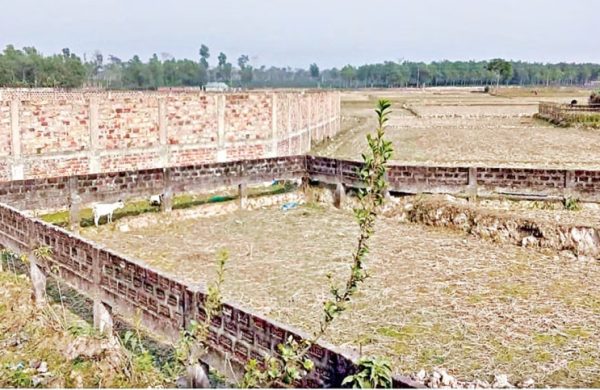Govt belt-tightening saved Tk 5,689cr in FY25
- Update Time : Sunday, September 14, 2025

TDS Desk:
The government cut its expenditure by 25 percent, or Tk 5,689 crore, in the fiscal year (FY) 2024-25 as part of a series of austerity measures.
This is more than twice the Tk 2,500 crore saved a year earlier.
In the last fiscal year, the development and non-development budget allocations for energy, buildings, vehicles and land acquisition totalled Tk 22,756 crore, but actual spending stood at Tk 17,067 crore.
To steer through the economic turbulence caused by the Covid-19 pandemic in March 2020, the authorities introduced the first round of belt-tightening.
Although the economy began to recover subsequently, the Russia-Ukraine war broke out in 2022. It drove up global commodity prices and inflated the import bills for the country.
The government therefore chose to maintain the austerity measures, saving about Tk 2,500 crore in FY 2023-24.
A finance ministry official said spending was reduced in several ways in FY25, making the actual implementation about Tk 150,000 crore lower than the revised budget.
In the last fiscal year, motor vehicle and water vessel costs were reduced by 75 percent to Tk 774 crore from the actual budget.
The allocation for aircraft was Tk 1,369.6 crore, while spending barely changed at Tk 1,361.33 crore.
Electricity costs dropped 13 percent to Tk 1,729 crore. Expenditure on petrol, oil and lubricants fell 20 percent to Tk 2,063 crore, according to finance ministry data.
Land acquisition costs were cut by Tk 1,875 crore, while spending on residential and non-residential buildings was reduced by Tk 559 crore, according to finance ministry data.
“It is good work to cut costs for purchasing vehicles, most of which are high and unnecessary. Moreover, this cost does not fulfil the main target of the development,” said Prof Selim Raihan, the executive director of local think tank South Asian Network on Economic Modeling (Sanem).
Raihan, also an economics professor at Dhaka University, said that the key issue is whether cost reductions affect health and education spending, which should be analysed.
“To ensure the dynamism of austerity, the vibrancy of the economy should be restored and stimulate private sector investment now. If this government waits for the next government, it would not be good for the economy. This is important,” said the economist.
The interim government is continuing the austerity measures this fiscal year, too.
In July, it imposed several restrictions on budgeted spending, including foreign travel and vehicle purchases.
However, the rule on vehicle procurement may prove difficult to enforce, as about 300 vehicles will be needed for the national election expected to be held in February next year.
The spending cut across ministries, state agencies and public corporations aligns with contractionary monetary and fiscal policies adopted by the Bangladesh Bank and the Finance Division to tackle the stubbornly high inflation.
After 27 months, consumer prices in June dropped below 9 percent and reached 8.29 percent in August, according to the Bangladesh Bureau of Statistics (BBS).
Weak revenue collection was another factor behind the cost-cutting measures, according to a finance ministry circular.
The latest round, effective from July 1, lifts restrictions on electricity, petrol, oil and lubricants, gas and fuel.
For these items, ministries were allowed to use up to 80 percent of allocations in the last fiscal year.
With the exception of education, health and agriculture, no ministry is allowed to construct new residential, non-residential or other buildings under the operating budget.
However, if the construction has already completed 50 percent, agencies may continue work with Finance Division approval.
Purchases of all types of vehicles, water vessels and aircraft from allocated funds will be halted, said the circular.
However, ministries can replace vehicles over 10 years old under the operating budget. For this, Finance Division approval will be required.
Land acquisition from the operating budget has also been halted.
For development projects, land may still be acquired if all procedures are completed. For this, clearance from the Finance Division will be required.
As per the latest circular, all block allocation spending under the operating budget will remain suspended.
However, ministries and divisions will be allowed to spend block allocations under the development budget based on approval from the finance ministry.
Participation in foreign seminars, symposiums and workshops under the government budget will remain suspended. However, foreign travel will be allowed for essential purposes on a limited scale, which will also require approval from the authorities.


















